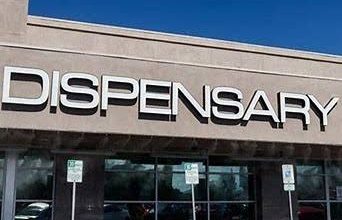Maximizing efficiency is a no-brainer when you’re running a firm. Increasing productivity has clear benefits, such as less employee stress and more profits. Successful efficiency depends on the specifics of your firm, your available resources, and the outcomes you seek. However, there are a number of approaches that all businesses may take to lessen waste and improve efficiency. In this piece, we’ll go through the various forms of business efficiency and provide you with some of the most useful guidelines (and resources) for running an effective enterprise.
Business Efficiency
Business efficiency refers to how successfully a company produces goods and services in relation to the time and resources required to produce them. Making the most of their resources, efficient businesses turn labor, raw materials, and capital into goods and services that bring in money for the business. On the other side, unorganized businesses lose time and money, slow down operations, and negatively affect profitability. A business can minimize waste throughout its organization by utilizing common efficiency measures and practices to enhance efficiencies, which frequently results in higher revenues, a happier and more productive workforce, and happier consumers. Naturally, businesses are constantly seeking methods to spend less money while generating more revenue. Many businesses that are looking to enhance their processes share two objectives: to create more high-quality goods and services without increasing costs, and to boost employee productivity without having to hire additional people.
A thorough examination of present operations is the first step on the road to improvement. A company can determine its strengths and shortcomings in terms of functioning as efficiently as possible by using internal measurements such as tracking investment returns or examining profit margin trends. It is simple to comprehend how corporate executives and decision-makers might become bogged down in day-to-day concerns and fail to recognize the necessity of streamlining and improving larger-scale procedures at every level of their organizations.
Even when a business is operating efficiently, there is always room for improvement. A company can often find areas to alter procedures to boost efficiency when technologies advance, new employees join the team, or supplier terms change over time. The need for change may also result from outside factors, such as the environmental effects of ineffective waste management or an inability to recruit workers in a tight labor market.
Business Efficiency Consulting
Business efficiency consulting is a service that helps businesses identify and implement improvements that will increase their efficiency. This can include anything from streamlining processes to improving communication and collaboration.
There are many benefits to business efficiency consulting. For example, it can help businesses:
- Reduce costs
- Increase profits
- Improve customer satisfaction
- Increase employee productivity
- Improve decision-making
- Increase innovation
If you are looking to improve the efficiency of your business, business efficiency consulting may be the right solution for you. There are many different consulting firms that offer this service, so it is important to do your research to find one that is a good fit for your needs.
Here are some tips for choosing a business efficiency consulting firm:
- Make sure the firm has experience in your industry.
- Ask for references from other businesses that have worked with the firm.
- Get a clear understanding of the firm’s fees and services.
- Make sure the firm is a good fit for your company culture.
Once you have chosen a business efficiency consulting firm, be prepared to work with them to identify and implement improvements. This may involve changes to your processes, systems, or even your culture. However, the results can be well worth the effort.
Business Efficiency Consultant
A business efficiency consultant is a professional who helps businesses improve their efficiency and productivity. They do this by identifying areas where the business can improve, and then implementing solutions to improve those areas. Business efficiency consultants typically have a background in business administration, management, or a related field. They also have experience in identifying and implementing solutions to improve efficiency.
Business efficiency consultants can help businesses in a variety of ways, including:
- Identifying areas where the business can improve its efficiency
- Implementing solutions to improve efficiency
- Training employees on how to improve efficiency
- Measuring the results of efficiency improvements
Business efficiency consultants can be a valuable asset to any business that is looking to improve its efficiency and productivity.
Consultants are experts who aid clients in achieving their objectives by applying their knowledge, experience, and abilities. An efficiency consultant for firms looks for ways to increase profits through increased productivity. An efficiency consultant may assess your company to determine where time, effort, and money are being wasted and then advise you on how to streamline your operations. A consultant that specializes in efficiency can help you restructure your business, find new ways to cut costs, and get the most out of your workforce. Businesses are in need of efficiency specialists as they try to adapt to the digital age. You can get an idea of what you should budget by requesting free quotations and consultations from various agencies and businesses that advertise their services online.
Before paying an efficiency consultant, make sure you’ve done your homework and asked any questions you might have. Whether you go through an agency or hire an efficiency expert independently, look for someone who has worked with businesses in your field. You can make the best decision if you read reviews and check references.
How Do Experts in Business Efficiency Help Their Clients?
Experts in efficiency assist firms to increase their bottom line by identifying ways to improve productivity and reduce waste. An efficiency consultant’s tactics may include anything from conducting in-depth audits to focusing on increasing profits. Consulting firms can benefit from efficiency teams in a number of ways.
1. Value Chain Mapping: an efficiency expert can assist your company become more cognizant of how each process contributes to the whole. Opportunity and income drivers can be identified with the help of this team member’s keen eye. A consultant specializing in efficiency can also identify which procedures are draining time and money.
2. Margin Maximization: Finding strategies to boost a company’s financial performance is one of the most crucial duties for a business efficiency specialist. Your efficiency specialist will keep track of how everything from inventory and supply chain management to sales and pricing affects your income in order to maximize margins. Your expert can advise you on how to improve your odds of sales after conducting significant study.
3. Reducing Outgoing Expenses: In addition to figuring out new ways to increase your income, your efficiency expert may also boost cash flow by cutting back on financial waste. The proper professional can help you uncover ways to cut recurring expenditures and eliminate expenses that aren’t providing a significant return on investment for your company.
4. Increasing Team Organization: A consultant may assist in improving team organization, which will enable you to make choices more quickly and produce outcomes for your team more quickly. An efficiency expert will assist you in setting priorities for which chores in your business should be completed first and will ensure that you complete your to-do list as quickly as possible.
Business Efficiency Examples
Keeping just enough inventory on hand to meet customer demand while avoiding surplus is essential to a successful retail operation. Another scenario is if the store employs just the right number of people to monitor the premises, provide assistance to clients, and process sales. Changes in who — or what — is responsible for a specific task frequently result in increased business efficiency. Some of the most noticeable developments in recent years have nothing to do with reassigning jobs to others in the firm, but rather with customers doing tasks on their own. Other benefits result from merging the unique skills of robots with those of humans. This potent combination can be seen in many of the following examples of business efficiency.
#1. Self-Service Checkout at Supermarkets.
Customers frequently report bad in-store experiences at grocery stores due to long queues and a lack of open registers. Many modern supermarkets provide both cashier-assisted and self-service checkout options for your convenience. Customers can save time by choosing self-service checkout options, such as scanning their own purchases at the register or using handheld scanners throughout the store’s aisles. The possibility of doing away with checkout lanes altogether is another way grocery shops may save money. This is when a store’s sensors and back-end technologies automatically charge customers for any merchandise they take with them as they leave. Only a few Amazon Go stores currently offer a true shop-and-go experience, or what Amazon calls “Just Walk Out” technology. Store management might be alerted by sensors when an item on a shelf needs to be restocked.
#2. Logistics System Automation.
Manual warehousing activities, such as inventory putaway and order picking, are not only time-consuming (thus expensive), but also prone to errors, which in turn causes order fulfillment delays to increase and ultimately disgruntled consumers who can easily buy elsewhere. Moving, lifting, and transporting boxes of merchandise also poses a danger of workplace injury to workers. Warehouse robotics is a developing industry that uses sensor technology and other advancements to automate and speed up various warehouse processes. From conveyor belts, which have been used in factories for over a century, to automated sortation systems or voice-directed warehousing procedures using mobile headsets, to automated guided vehicles that transport products around a warehouse, robots are utilized in automation in a wide variety of contexts. The initial investment required to automate a warehouse is usually sizable.
#3. Forecasting and Predictive Analytics.
For many years now, smart companies have been utilizing advanced automated tools to extract valuable insights from their data. By doing so, they have been able to enhance their operations, performance, and forecasting capabilities. The outcome? An increase in business efficiency and higher revenue. For example, a company that utilizes artificial intelligence or machine learning to predict when a customer will require a product replacement or service can strategically time its marketing approach. For example, a retail electronics store may send a coupon via email. The information can also be utilized internally to ensure that the company maintains sufficient inventory to replace or repair the product in question.
How to Improve Business Efficiency
True company efficiency demands constant observation and regular revisions. Here are 10 methods for increasing business efficiency.
#1. Streamline More Processes.
Many processes in a corporation can be automated to save time and costs and improve overall productivity. Data entry by hand can be laborious, time-consuming, and error-prone. In addition to producing more accurate data, automating operations like inventory allocation, demand forecasting, accounts payable, and accounts receivable can also accelerate total production, which can boost sales and profitability. Additionally, it frees up workers to concentrate on higher-level tasks like problem-solving that need critical thinking and a human touch. Automation can, in fact, make workers more interested in their work and lessen the irritation that frequently comes with having to execute boring and repetitive activities, allowing a company to retain a happier, more effective crew.
#2. Encourage Open Dialogue.
While managers may be adept at managing many aspects of a business, it’s possible that they are less familiar than their staff with the numerous day-to-day issues, including any pain points and bottlenecks they encounter. Establishing a friendly work environment that encourages open communication can motivate employees to alert management to workflow inefficiencies and offer solutions before they worsen. Making employees feel like vital team members with a genuine interest in the company’s future is another advantage of encouraging open communication.
#3. Minimize the Need to Multitask.
While it may appear that multitasking increases productivity and efficiency, research has shown that the contrary is really true over time. Giving employees uninterrupted time to concentrate on one task at a time can help them perform better, which in turn can improve the performance of the business. This is true, as much as possible, and with the exception of emergencies and urgent problems.
#4. Assign Tasks to Others.
Some bosses meticulously scrutinize each and every aspect of their employees’ job. However, when two employees are essentially performing the duties of one, the work can be twice as expensive and take twice as long for a corporation. Delegate particular roles and define clear goals connected to specific activities to prevent duplication among staff members at all levels of a company.
#5. Keep Spirits Up.
It takes more than having a full snack cabinet and the odd workplace party to boost employee morale. Making sure employees feel that their labor and time are valued by the organization is key to maintaining excellent morale. Employees might not feel motivated to go above and above if they don’t perceive any prospects for growth, for instance.
What Is Efficiency and Effectiveness in Business?
The ability to complete a task with the least amount of lost time, money, and effort—or performance competency—is what is meant by efficiency. Effectiveness is the extent to which something succeeds in achieving the anticipated outcome; success.
How Can a Business Increase Efficiency?
Six Ways to Improve Your Company’s Efficiency
- Operations should be automated. One of the most effective strategies to increase productivity is to automate as many processes as feasible.
- Improve Time Management.
- Look for Outsourcing Opportunities.
- Listen to Your Team.
- Never Stop Improving.
- Delegate and Consolidate Tasks.
How Do You Define Efficiency?
The ability to attain a task with little to no waste, effort, or energy is referred to as efficiency. Being efficient means that you can attain your goals by allocating your resources as effectively as possible. Simply put, something is efficient if no resources are wasted and all processes are optimized.
What Are the Three Types of Efficiency?
Economists typically divide efficiency into three types: allocative efficiency, productive efficiency, and dynamic efficiency.
What Is Efficiency in Business Objectives?
To be efficient is to do things the “right” way, whether that means working faster, using less resources, completing large projects on a smaller budget, or some other form of “more” with “less.” Effective groups typically: Manage project processes. Develop strategies for allocating and utilizing your resources.
What Factors Influence Efficiency?
Causes of Effectiveness in the Workplace
- Clearly articulated roles and responsibilities.
- Clear and concise communication.
- Reasonable but firm policies.
- Wages/Salary.
- Employment Stability.
- Time Management.
- Positive atmosphere at work.
- Responsibility for Content – Information About the Authors
What Are the Benefits of Business Efficiency?
Businesses that are efficient run smoothly and waste fewer resources. Employees make the best use of their time, and investments pay off handsomely, allowing a company to expand and earn more money.
What Does Efficiency Lead To?
As a result, assessing efficiency can assist reduce expenses and boost profits. Corporations, for example, can analyze the efficiency of their production process, which can help them save costs while improving output, resulting in more sales and revenue.
Conclusion
While efficiency is especially crucial in fields such as healthcare, the ideas are a wonderful basis for any organization—whether you’re a one-person operation, a small enterprise, or a large conglomerate. By analyzing your existing efficiency and determining how to improve it, you will make everyone more productive and significantly increase your bottom line.
Related Posts
- How Can ERP Software Improve the Efficiency of Your Business
- Essential Products For Your Business’s Materials Handling
- BUSINESS LIABILITY INSURANCE ONLINE: Detailed Guide
- Business Consultant: How To Become A Business Consultant In Nigeria
- What is Business Incorporation: Definition, Pros and Cons






